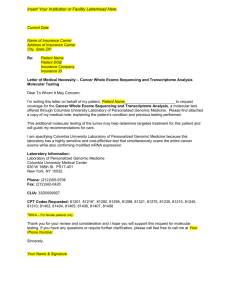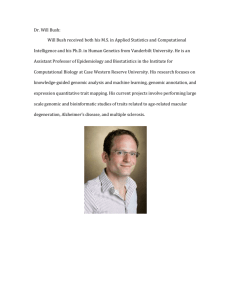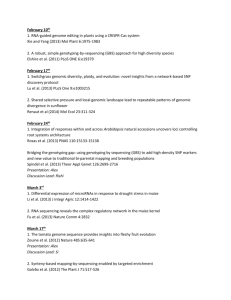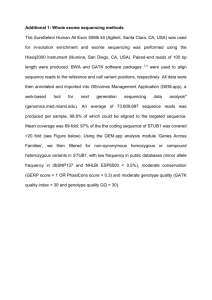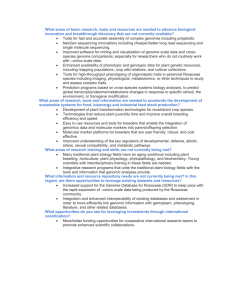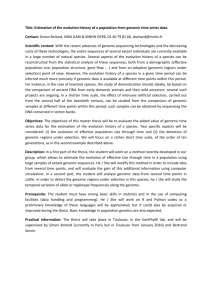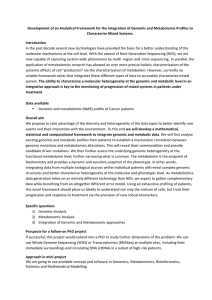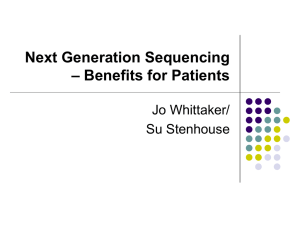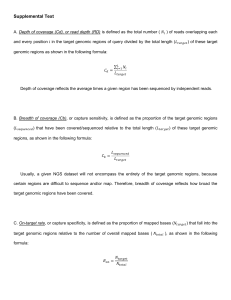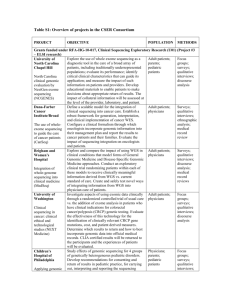Next generation sequencing methodologies in identifying
advertisement
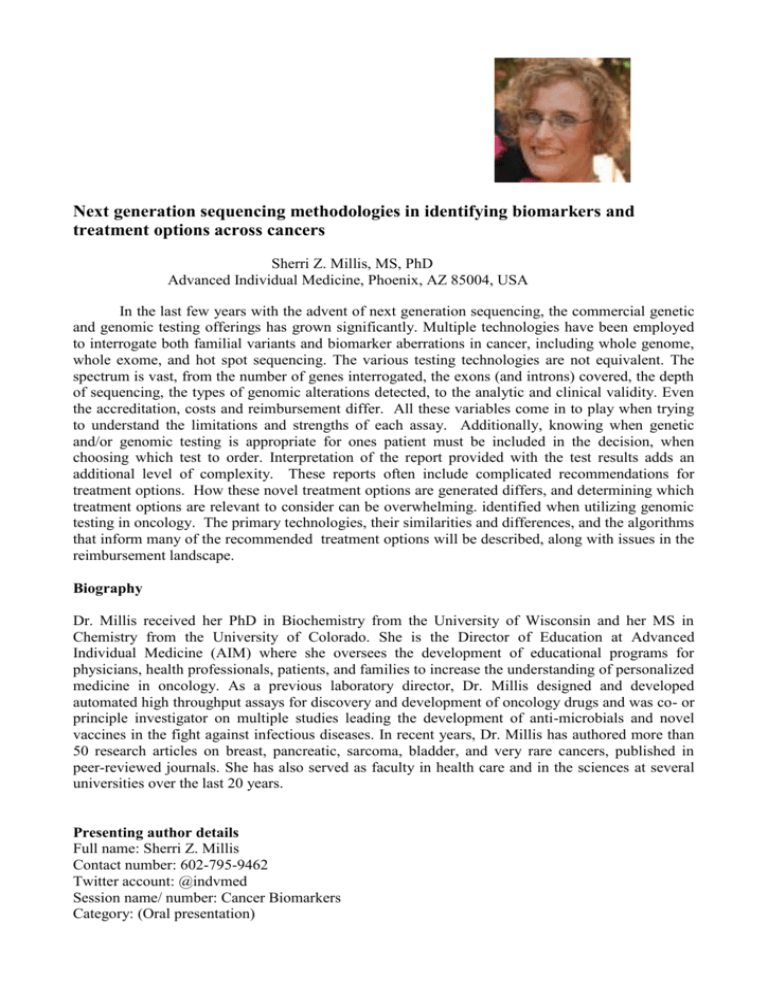
Next generation sequencing methodologies in identifying biomarkers and treatment options across cancers Sherri Z. Millis, MS, PhD Advanced Individual Medicine, Phoenix, AZ 85004, USA In the last few years with the advent of next generation sequencing, the commercial genetic and genomic testing offerings has grown significantly. Multiple technologies have been employed to interrogate both familial variants and biomarker aberrations in cancer, including whole genome, whole exome, and hot spot sequencing. The various testing technologies are not equivalent. The spectrum is vast, from the number of genes interrogated, the exons (and introns) covered, the depth of sequencing, the types of genomic alterations detected, to the analytic and clinical validity. Even the accreditation, costs and reimbursement differ. All these variables come in to play when trying to understand the limitations and strengths of each assay. Additionally, knowing when genetic and/or genomic testing is appropriate for ones patient must be included in the decision, when choosing which test to order. Interpretation of the report provided with the test results adds an additional level of complexity. These reports often include complicated recommendations for treatment options. How these novel treatment options are generated differs, and determining which treatment options are relevant to consider can be overwhelming. identified when utilizing genomic testing in oncology. The primary technologies, their similarities and differences, and the algorithms that inform many of the recommended treatment options will be described, along with issues in the reimbursement landscape. Biography Dr. Millis received her PhD in Biochemistry from the University of Wisconsin and her MS in Chemistry from the University of Colorado. She is the Director of Education at Advanced Individual Medicine (AIM) where she oversees the development of educational programs for physicians, health professionals, patients, and families to increase the understanding of personalized medicine in oncology. As a previous laboratory director, Dr. Millis designed and developed automated high throughput assays for discovery and development of oncology drugs and was co- or principle investigator on multiple studies leading the development of anti-microbials and novel vaccines in the fight against infectious diseases. In recent years, Dr. Millis has authored more than 50 research articles on breast, pancreatic, sarcoma, bladder, and very rare cancers, published in peer-reviewed journals. She has also served as faculty in health care and in the sciences at several universities over the last 20 years. Presenting author details Full name: Sherri Z. Millis Contact number: 602-795-9462 Twitter account: @indvmed Session name/ number: Cancer Biomarkers Category: (Oral presentation)
